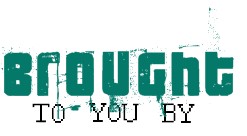QCF: Valiant Hearts: The Great War

 o say that the depiction of war in video games is a bit misgiving when it comes to displaying the harsh reality of its trauma and destruction would be an understatement, because video games are supposed to be fun; who has the stomach to digest all of that deep shit, am I right?
o say that the depiction of war in video games is a bit misgiving when it comes to displaying the harsh reality of its trauma and destruction would be an understatement, because video games are supposed to be fun; who has the stomach to digest all of that deep shit, am I right?
Valiant Hearts is an emotional campaign that challenges the usual representation of those historical conflicts by centering on the first global battle that rocked our planet. The third UbiArt Framework driven game from the Montreal studio is an unassumingly beautiful animated take on World War 1 that truly channels the cruel gravity of conflict in ways that are equal parts compelling, as they are heart wrenching, to a deafening extent the deeper players venture through it.
What makes Valiant Hearts’ retelling of the Great War that rocked nations so intense is that isn’t simply done through the perspective of four personable characters, it’s done through four very relatable characters, very human ones.

Behind the universally appealing cartoon aesthetics of the visuals, are believably true to life struggles and subsequently harsh outcomes that willfully weigh on players from the very start, never stopping the growing pile that stacks on top of your moral threshold.
The pacing in introducing each main character and their eventual connection with one another does admittedly come off a bit compulsory, through in what may arguably play like a McGuffin-fueled orchestration of events, to develop the story. However, the narrative perseveres in its presentation thanks in large to the subtle touches utilized in the exposition of the characters, that gradually unfold as  the plot moves forward, especially in a number of specifically surprising exhibitions of the human element that their roles convey during the more harrowing moments of the war, and its effect on them. While the tone of war sets itself on the finesse of human contingence and themes that played close to the chest, the physical dynamics of playing take a backseat in a way that doesn’t take anything away from the agency of the experience; instead, it naturally plays it’s part to keep the sentiment of the campaign in constant motion.
the plot moves forward, especially in a number of specifically surprising exhibitions of the human element that their roles convey during the more harrowing moments of the war, and its effect on them. While the tone of war sets itself on the finesse of human contingence and themes that played close to the chest, the physical dynamics of playing take a backseat in a way that doesn’t take anything away from the agency of the experience; instead, it naturally plays it’s part to keep the sentiment of the campaign in constant motion.
Valiant Hearts side-scrolling gameplay doesn’t set the world on fire by any means, and sure, while the gameplay is your typical puzzle platforming affair, it stands out with the charm of brilliantly complimenting the atmosphere and tension organically that’s built from the title’s storytelling. Moving from stage to stage, each character has a certain niche about them that defines certain details to the mechanics, Emile is more puzzle oriented and plays the surrogate owner to the game’s adorable canine mascot for most of playthrough than any of the other cast of characters. Freddie on the other hand has a more hands on approach towards the actual warfare and participates directly in the combat of the story or the puzzles that focus on combat set-pieces; Karl and Annie are handled under a mixture of the two styles depending on the context of the immediate narrative taking place.
The stage design focusses heavily on telegraphing the direction of clues and solutions to any number of the dilemmas through Rebus-orientated visual cues, which does maintain the theme of minimalism and pantomiming of Valiant Hearts chronicling, but there are points where the clues can be downright cryptic to a fault. The unique approach to this exposition does demand more investment, but certain problems are just esoteric in placement and discovery that it interrupts the engagement of the plot. The loss of momentum cause from some of these brain-stumpers just interrupts the flow, and the experience loses some of its grip as a result.

I’d like to say that I was pretty proud of myself when I did manage to conquer a certain obstacle during play without stopping to consult an online walkthrough to help but I wasn’t; I honestly felt more frustration from the endeavor than any actual accomplishment from it. Thankfully, there were only a handful of these particular puzzle that were obscure to a fault, the majority of Valiant Hearts has a more natural streamline to its progression in relation to the rebus-structure of direction that it’s founded on.
To say that I didn’t come away reeling from my time with Valiant Hearts is an understatement. The tragedies and historically accurate footnotes it addressed behind the perspective of four people and their role within the war to end all wars is magnificent balance of liberal storytelling and genuinely touching moments of the human condition that have never been delivered quite like this before.
There’s no excuse not to own Valiant Hearts considering the modest price of admission it has on virtually every digital storefront for video games today—whip out the credit card and then the nearest box of tissues, you’ll be needing it.






 GeorgieBoysAXE
GeorgieBoysAXE




